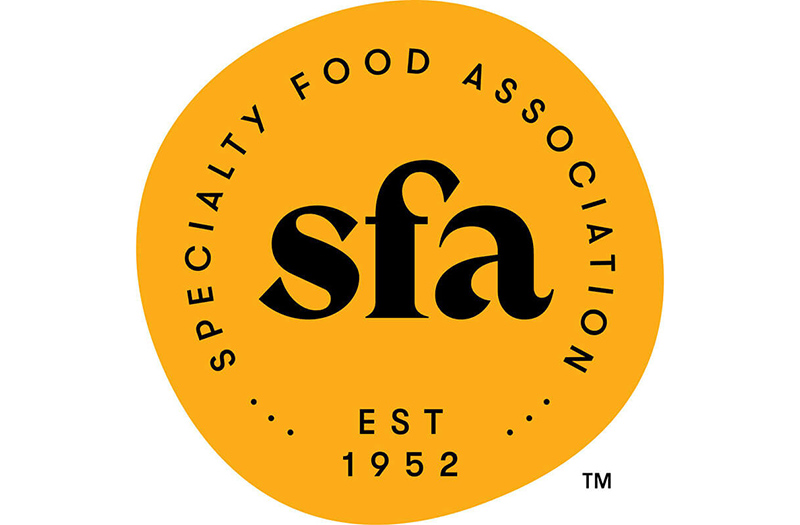Based on sales data from the past three calendar years, the new Specialty Food Association’s (SFA) annual state of the industry report reveals a specialty food industry hitting $158.4 billion in sales, a 10.7 percent increase since 2017. The full report includes commentary throughout that reflects the impact and ramifications of COVID-19.
Foodservice and online sales continued to grow through 2019, prior to the pandemic, with food inflation playing a role in the three-year industry growth as unit sales did not keep pace with dollar sales. In brick-and-mortar retail, the specialty food and beverage market continued to outpace sales of all food, growing three times faster than the entire food and beverage market during 2017-19. In 2019, more categories than ever before (12) achieved at least $2 billion in annual sales, according to the state of the industry report.
“The impact of COVID-19 on the specialty food industry cannot be underestimated,” said Bill Lynch, interim president of the SFA. “Food retail is an essential business channel and while that has been beneficial to sales for our members, many of whom are small businesses, the overall landscape is both optimistic and uncertain. The intel provided in our state of the industry report is one of the many resources we provide our members for fortifying and growing their businesses.”
The annual state of the industry report is an examination of market size and sales; dollar and unit sales growth; specialty food category penetration; growth forecasts in key categories; and consumer demographics, habits and preferences. Working with Mintel, the SFA explores the evolution of the specialty food consumer, where the market stands and where it is going based on sales forecasts in key categories.
Key facts and figures
- Top Five Categories with Highest Dollar Growth: Refrigerated Plant-based Meat Alternatives, Shelf-stable Creams and Creamers, Refrigerated Creams and Creamers, Refrigerated RTD Tea and Coffee and Frozen Breakfast Foods;
- Top Five Categories – Retail Sales: Cheese and Plant-based Cheese, Meat, Poultry, Seafood (Frozen and Refrigerated), Chips, Pretzels, Snacks, Coffee and Hot Cocoa (non-RTD) and Bread and Baked Goods;
- Share of Consumers Buying Specialty Foods by Generation (2020): Gen-Z – 76 percent, Millennials – 82 percent, Gen-X – 70 percent and Baby Boomers – 59 percent.
The impact of COVID-19: insights and takeaways
- Retailers are re-strengthening their value. Despite massive growth in online grocery ordering, brick-and-mortar retailers are more important in their communities than ever.
- A resurgence of cooking and baking at home. Instances of cooking at home during the pandemic are obviously way up and some of these behaviors will stick, especially in a recession.
- Value shopping. Though specialty food consumers are typically more affluent than non-specialty food consumers, Mintel expects that a sizable percentage of SFCs will prioritize value more than they have previously because of the pandemic.
- Diminished innovation. The word essential is being applied to most aspects of the supply chain.
- Manufacturers are assessing their SKUs and eliminating low-selling products in favor of their top sellers.
- Snacking soars. Snacking has become a much more common behavior among all consumers (specialty food and non) as they stay at home more frequently and grow tired of from-scratch meal preparation.
- Plant-based benefits. For the most part, the plant-based food movement hasn’t been adversely impacted by COVID-19. Many brands saw sales increase as dairy products like milk and animal proteins were out-of-stock at times during the panic buying surge in March.
- Better-for-you product demand. Health is of growing importance to consumers and they’ll increasingly seek better-for-you options, especially functional products that offer immunity-boosting ingredients.
Read more at specialtyfood.com/state2020.
Founded in 1952 in New York City, the SFA is the leading advocate for the $158.4 billion specialty food industry. Representing makers, importers, entrepreneurs, retailers, distributors and others in the trade, the SFA aims to champion, nurture and connect its members to deliver traditional and innovative new products to consumers that expand consumption of specialty foods. With over 4,000 member companies, the association helps its members through providing information, research, educational events, and celebrating the industry through its awards programs. The SFA is known for hosting the Winter and Summer Fancy Food Shows and presents the sofi Awards honoring excellence in specialty food.

